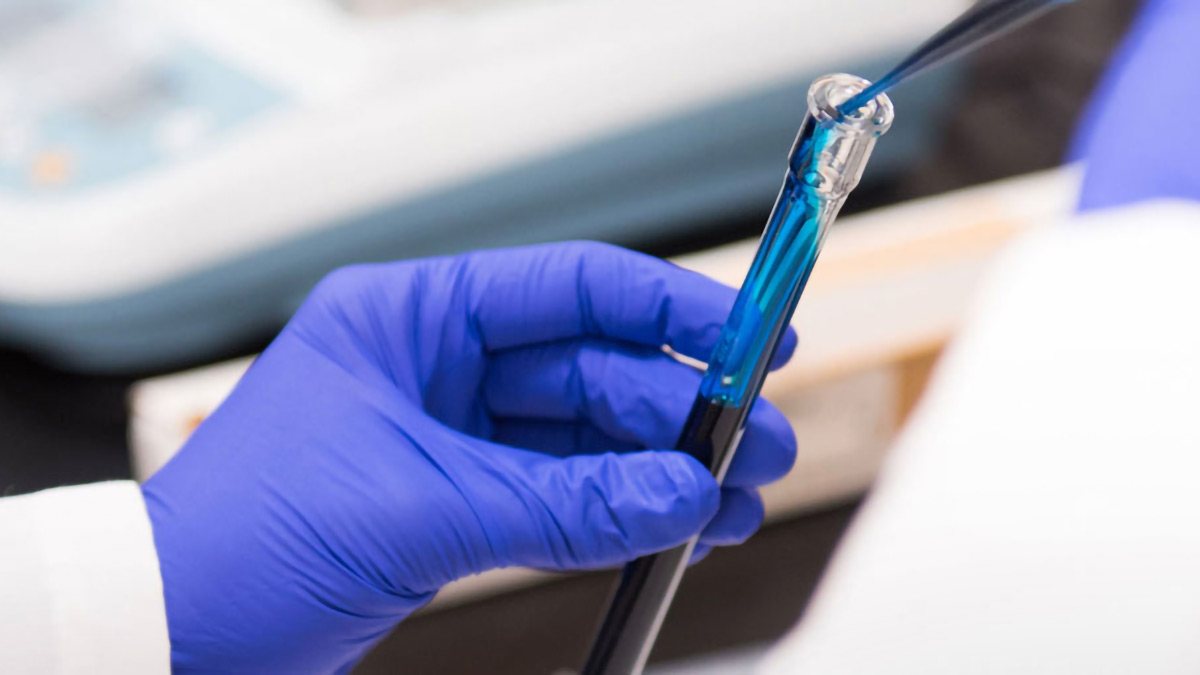Pre-Baccalaureate Studies in Science and Mathematics

Pre-Baccalaureate Studies in Science and Mathematics
- RIT /
- Rochester Institute of Technology /
- Academics /
- Pre-Baccalaureate Studies in Science and Mathematics
Lay the groundwork for a scientific future with Pre-Baccalaureate Studies in Science and Mathematics. Explore the unknown.
Overview for Pre-Baccalaureate Studies in Science and Mathematics
The pre-baccalaureate studies program is available to students who are accepted by NTID and are close to, but not fully ready for, direct entry into a baccalaureate-level program through one of the other colleges of RIT. It is a bridge program for qualified students, based on academic transcripts, scores on admissions tests, and other evidence that supports a reasonable expectation of success in baccalaureate course work. Qualified students who are undecided as to a program of study may choose the career exploration studies program.
Enrollment in the pre-baccalaureate studies program is appropriate for students who need to further develop mathematics, English, or discipline-related skills. The academic program is flexible and individualized and allows students to focus on needed skills while concurrently progressing toward their chosen field of study. Students may take courses taught by NTID faculty, as well as entry-level courses taught in other RIT colleges. While in the program, students receive academic advising as well as career counseling.
Students cannot receive a degree in pre-baccalaureate studies. Rather, they will apply for admission into a baccalaureate program as soon as they are academically ready and the college offering their chosen baccalaureate program reviews their application for admission. After completing an entire academic year in the program, a student must transfer to a degree-granting program in NTID or one of the other colleges of RIT.
-
Join us for Fall 2026
There's still time to apply. For some programs, applications will be reviewed on a rolling, space-available basis.
Curriculum for 2025-2026 for Pre-Baccalaureate Studies in Science and Mathematics
Current Students: See Curriculum Requirements
Admissions and Financial Aid
Specific English and Mathematics Requirements and other Recommendations
Students entering pre-baccalaureate studies in science or mathematics will typically be required to have:
- English: Placement into Critical Reading and Writing (UWRT-100)
- Mathematics: Placement in NTID Advanced Mathematics (NMTH-275) course or higher
- ACT (optional): The ACT middle 50% composite score is 18-21 with subscores of at least 19.
Financial Aid and Scholarships
100% of all incoming first-year and transfer students receive aid.
RIT’s personalized and comprehensive financial aid program includes scholarships, grants, loans, and campus employment programs. When all these are put to work, your actual cost may be much lower than the published estimated cost of attendance.
Learn more about financial aid and scholarships
Accreditation
Contact
- Austin Gehret
- Department Chair
- National Technical Institute for the Deaf
- 585‑475‑3971
- augnts@rit.edu
Department of Science and Mathematics














